
We kindly inform you that, as long as the subject affiliation of our 300.000+ articles is in progress, you might get unsufficient or no results on your third level or second level search. In this case, please broaden your search criteria.


It is not only the deportations, but also the political evictions from the countries of the communist bloc carried out as a result of applications that are forcible, whether they are large minority groups or opposition-minded citizens and dissidents. In order to survive physically, citizens from the region of the former communist camp, the life of which became impossible in totalitarian conditions, applied for emigration to diplomatic representations of some countries of the Western bloc. If they were given basic civil rights and freedoms, freedom of speech and thought, the right to profess their religion, they would all prefer to remain in their country. The aim of this paper is on the basis of Turkish and Bulgarian documents to shed some light on the character of the first ethnic cleansing (1950–1951) in communist Bulgaria which have caused the following „voluntary“ exodus (1969–1978), which preceded the largest, second ethnic cleansing since 1989, perfidously called the "great excursion".
More...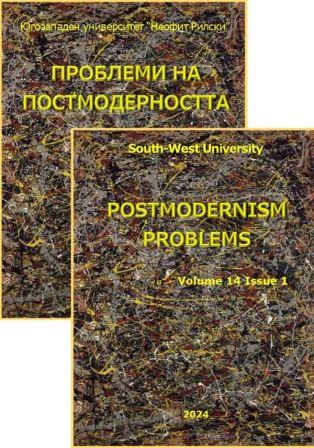
The human experience of consciousness and the divine has long been a source of fascination and curiosity. In recent decades, two seemingly disparate fields have emerged one after the other to rethink our experiences in new contexts: postmodernism and neurotheology. It was already obvious to Aristotle that logic is a reflection of language. This immanent coherence and the status of "truth" have been well-rethought by the neurosciences. Neurotheology offers a new field of research on key problems related to paralogisms, the aetiology of belief, and social beliefs in the direction of generating a new field of solutions. It attempts a kind of technical revision of why thinking suffers from deficiencies with a rather Cartesian approach. The other line of reasoning also provides interesting perspectives - the consideration of consciousness as a function of the universe. If successfully tested - this thesis would fundamentally change the perspective of psychology in the direction of a complete transformation and fusion with neuroscience. The big winner in the duel of positions is ethics - it would have to rethink its basic definitions, with all the social implications that entails. The advent of brain implants and large language models (which, driven by intellectual inertia, we call "artificial intelligence"), and advances in medicine and pharmacology certainly contribute to the possible realization of some, if not all, of these scenarios.
More...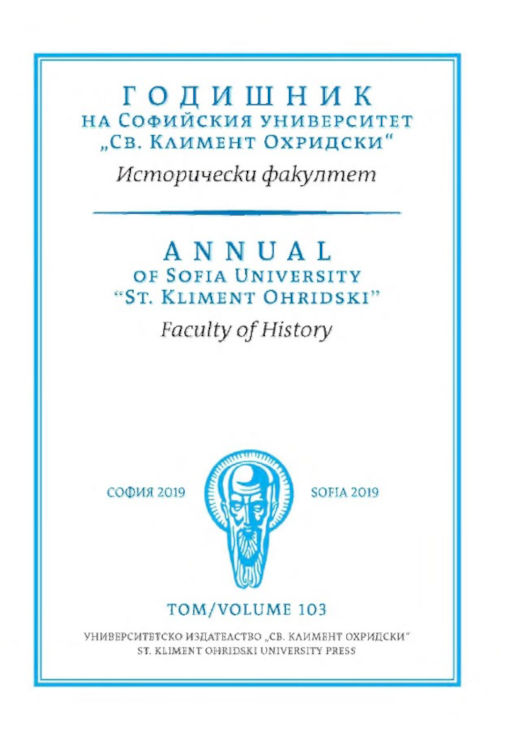
The article represents full written version of inaugural speech in occasion of conferring on the author the degree of Doctor Honoris Causa of Sofia University "St. Clement of Ochrid" delivered in the Aula on Мау, 28th, 2018. It goes to substantiate the notion of spiritual communities ( communities of Spirit) as а research object in medieval Bulgarian culture drawing together contemporary academic approach and medieval understanding of specific type communities, both imagined and really existing. The author reveals specific features of such communities against the background of the intellectual networking communities theory bу British sociologist Randall Collins, the research project "Complexities and Networks in the Medieval Mediterranean and the Near East- СОMMED" bу Austrian Academy of Science and the results of recent studies of Byzantine intellectual life.
More...
The review of Miroslav Dachev's book “Miraculous Icons of the Theotokos on Mount Athos” (Athoniada Library Series, Volume 9, 2023) is focused on the semiotic analysis of the miraculous images of the Mother of God in the Theotokos on Mount Athos. To explain the essence of the miracle, the place, time, name, and voice of the miraculous icons of the Holy Mother are examined individually. Additionally, their photographic images are included in the dialogue among all of them – one of the greatest achievements of Dachev's analysis.
More...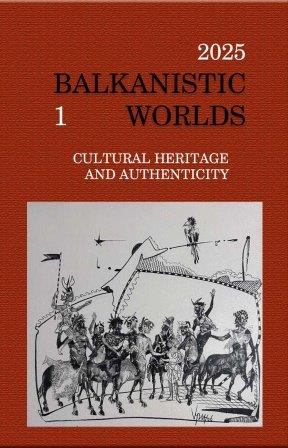
This article explores the Zakonik Danila Prvog (Code of Danilo I) as a foundational legal document that shaped Montenegrin governance and national identity by integrating Orthodox Christian values into the state’s legal framework. Established in 1855, the Zakonik reflected the influence of Orthodox Christianity on justice, morality, and public life, while also serving as a tool for asserting Montenegrin sovereignty against Ottoman and Catholic influences. The analysis investigates the deep interconnection between law, religion, and national identity, comparing the Zakonik with Eastern Orthodox canon law and highlighting its role in regulating religious life, family law, and public morality. Additionally, the article discusses the tensions between customary tribal laws and Christian doctrine and explores how non-Orthodox communities were governed under this legal framework. The broader implications of the Zakonik for Balkan legal and religious history are also examined.
More...
The article examines the relationship between philosophy and religion and attempts to critically distinguish their subject matter based on the views of some of the most prominent representatives of philosophy and theology in the 20th century.
More...
The report deals with the visible and material world that could prove its existence only via the perception of a specific consciousness and sensorium. The text also refers to the reality of knowledge that can be collected from various material epistolary or graphic monuments, and it is the professionalism and labour of persons of science who struggle to decode the hidden valuable information. This information is seen as knowledge of great capacity and needs to be conveyed from past to present with a focus on the future. This worth-it knowledge could be carried over via material written “monuments” or via spoken, viva voce, means which is filmier but still a method.
More...
The author retells from the first person the memories of Stana Gorgorova from the village of Dospey, Samokov municipality, about the origin, childhood, monasticism, and death of Panko Hristov Gorgorov, also from Dospey, who took the monastic name Paisiy. She claims that Panko Gorgorov and the famous Bulgarian revivalist Rev. Paisiy Hilendarski are the same person.
More...
The article examines the question of the veneration of St. Panteleimon in the Balkans as a healer of contagious diseases such as plague, leprosy, etc.
More...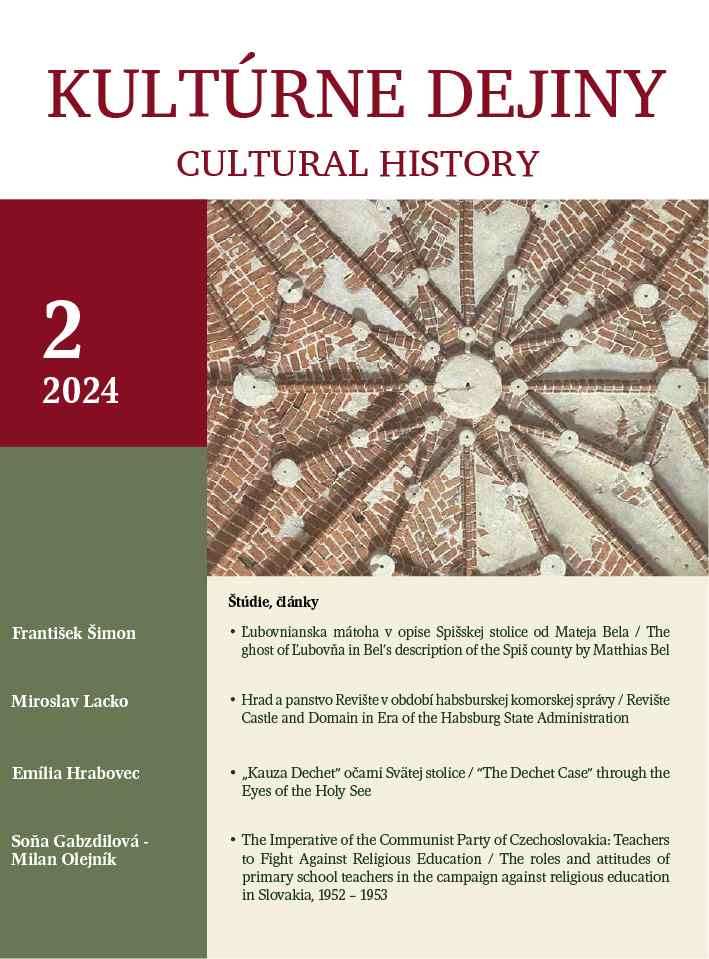
The paper deals with a complex issue – the involvement of the teachers at primary educational institutions (the first [first to fourth grade] and second schools levels [fifth to ninth grade] at that time) in the anti-religious campaign – the campaign to sign children up for religious education, launched by the Communist Party of Czechoslovakia in the early 1950s that escalated in the 1952/1953 school year. It refers to the fundamental postulate of the Communists in the field of school policy – to educate pupils in accordance with the ideological doctrine of Marxism-Leninism, including the inseparable component of atheism. The result of the educational process aimed to create a young generation with a materialistic worldview. In this context, the first step was to limit children's participation in religious education in the first and second levels of school. The study presents the policy of the ruling political party's attempt to achieve the lowest possible attendance of pupils in classes of religious education and the different steps that the communist regime used to achieve this goal. It analyzes the participation and attitudes of teachers in the campaign to enrol pupils in religious education and highlights the primary role of teachers, who played an indispensable part in that campaign. The campaign focused primarily on persuading parents not to enroll their children in classes of religious education. As civil servants, the teachers were used by the Communist Party of Czechoslovakia in the pursuit of its goals. The paper points to the fact that school staff, similar to Slovak society as a whole, overwhelmingly supported a religious worldview, which was confirmed by the results of a census conducted in March 1950. It was therefore necessary to ‘re-educate and vet teachers'. In this context, the study discusses the various new forms of ‘education' of teachers in order to achieve the highest possible number of those in their ranks who would at least formally declare their atheistic position.
More...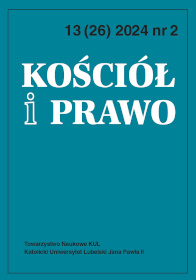
The purpose of this article is to analyze existing domestic regulations aimed at protecting minors from violence and strengthening respect for their rights. The authors focus on the obligations of Catholic Church parishes under the amended Act of 13 May 2016 on counteracting sexual offenses and on the protection of minors (i.e., Journal of Laws of 2024, item 560). The article highlights what should be included in the standards for the protection of minors and discusses who should undergo clean criminal record vetting, as well as the extent of such vetting for personnel who have contact with children.
More...
The aim of the research is to provide motivation for the necessity of communication with God and to justify the generation of a specific type of Speech Acts (SAs), which involve a communicative triad: the producer and dual addressees – a real or virtual interlocutor and God, through a brief diachronic overview of some philosophical perspectives on the idea of God, based on material from Polish paremiology. The success of SAs is guaranteed by the presence of the Almighty, directly or indirectly invoked in SAs emanating from proverbs. This presence is presented in the study as part of the communicative roles of the Almighty: the Absolute Idea, the Absolute Ruler, the Absolute Truth, the Supreme Creator, and the Absolute Mystery. The subject’s inner imperative generates illocutionary impulses, demonstrating reverence, devotion, most often non-contradiction, and dedication to the Higher Power. The methods used include comparative, cognitive-analytical, semantic-pragmatic, and conceptual-prognostic ones.
More...
The arrangement of the vessels from khan Kubrat’s treasure (Kurt in the Nominalia of Bulgarian khans), found in the Kurtgorod area near Mala Pereshchepina in Ukraine, suggests a ritual burial with cremation and selected bones in related to shamanism. Around the large silver jug with handles there was a golden goblet placed as a head. The golden and silver goblets were arranged in two rows and below them the dishes and other vessels were laid, some of which upright. The rows of cups accompanied the khan like the stones-spirits (devtashi) with a “leader”, where the golden ones had bells with horse bones. The “leader” is represented by a richly decorated golden goblet with green glass and strings of pearls in connection with the Zoroastrian new year "Nowruz", celebrated on the day of the vernal equinox (March 21) with the rebirth of nature.
More...
The most effective tool for building national consciousness is to find a negative reference point in the form of a foreign nation or state. For the Irish, these are the English, who are often referred to as Anglo-Saxons or even Saxons, and Britain. The history of the Irish is marked by English oppression, which during the Reformation gained another factor in the form of religious persecution. Consequently, Catholicism became the hallmark of the Irish, and this in a situation where there was no shortage of Irish of the Protestant faith who did not identify with the English/ British crown. The Irish were eagerly portrayed as a backward people, and hence the folk music popular among them was looked down upon in the same way. The merit of the band The Dubliners, formed in 1962, was to strengthen Irish national pride – many came to believe that there was no need to imitate what was English or American. It is enough to remain oneself. In the songs performed, The Dubliners refer to important events in the history of the Irish struggle for independence. One can point to the Revolution of 1798, the Great Famine (1845–1849), the Easter Rising (1916) and the unrest in Northern Ireland in the decades following World War II. Many of the characters appearing in the ballads performed by The Dubliners, even a dog named Master McGrath, are historical in nature. To this day, songs arranged by The Dubliners are regarded as exemplary.
More...
After World War II, the communist security apparatus blackmailed, persecuted and murdered priests who resisted the government. In every political trial against Polish citizens, some priest or other clergyman sat on the defendants’ behalf. In addition to the accusations of inciting war, accusations of moral corruption of youth and children, embezzlement, attempts to overthrow the system, espionage for foreign intelligence, etc., were also common. The resources of the Office for the Disclosure and Archiving of Documents of the branch of the Institute of National Remembrance in Warsaw contain a collection of documents consisting of 37 typescript cards with the title: Statement of facts and symptoms of hostile activities performed by spiritual persons of the roman-catholic Church in the Gorzow (Gorzów) diocese in the period of 1945–1963. The title page of the collection indicates that it was produced in Office „C” of the Ministry of Internal Affairs with the preservation of „classified” clause. It was declassified by the decision of the Head of the Office for State Protection of October 5, 1999 and transferred to the resources of the Institute of National Remembrance in Warsaw, when this institution was established, where it was given the reference number: IPN BU 0397/468, vol. At the seat of the Office for Disclosure and Archiving of Documents of the Institute of National Remembrance in Szczecin, as part of the research project carried out on June 25, 2009, copies of these documents were made and the author was in possession of these. Based on this archival collection, a historical analysis was made according to the nature of crimes related to the hostile activity of the Roman Catholic Church clergy in terms of legal and propaganda terminology from the communist period. These were the classifications of crimes: activities related to the underground, espionage, illegal possession of weapons, enemy propaganda (e.g. against patriots and political organizations, against the political principles of the People’s Republic of Poland, against the policy of the state towards the Church, and others) and against the legislation of the Polish People’s Republic (i.e. the decree on freedom of conscience and religion, the law on assemblies, the law on termination of pregnancy, secularism, financial regulations and ordinances, construction regulations, distribution without debit and others). According to the data contained therein, in general, 162 priests were hostile against the authorities, while the recorded facts of hostile actions by the clergy were recorded 215.
More...
The establishment of a calendar of public holidays within nation-states gives expression to the national ideal, to the "values, merits and achievements" important for the affirmation of national identity. Looking at the normative and institutional order, draws attention to the framework set by the state and its supposed best possible realization. If we turn our attention to places and regions and look for records of the process, we can see how public holidays are celebrated and how national ideas reach people and communities. This study proposes a look at the archival documents of a village community center (focusing on the period from the 1930s to the 1980s) in an attempt to show how a local cultural and educational institution, charged with the duty of establishing and organizing the village holiday calendar, accomplished this task. In this way, local 'resistances' can be seen and our understanding of what actually happened in the official holiday calendar can be deepened.
More...
The papal bull of Pope Pius VII De salute animarum of 16 July 1821 put in order the affairs of the Catholic Church in Prussia, including West Pomerania and Lubusz Land. Together with it, the face of the Catholic community, which in the Middle Ages was part of the Kamien (Kamień) Pomorski and Lubusz Bishoprics, and completely destroyed during the diaspora (starting from the mid-16th century), began to be reborn in its structures. The area of the former Kamien (Kamień) Pomorski Bishopric was subordinated to the Berlin Delegation, which was part of the Wrocław (Breslau) Diocese, which in 1930 was raised to the rank of a bishopric, and the areas of the former Lubusz Bishopric directly to the Wrocław (Breslau) Bishopric. When in 1821 there were three parishes within the Berlin Delegation (in Szczecin, Stralsund and Frankfurt (Oder)), already in the mid-19th century there were two archpresbyterates: Pomeranian with 10 parishes and Frankfurt with 7 parishes, and within the Wroclaw (Wrocław – Breslau) Diocese the Neuzelle Decanate with 5 parishes (covering the area of the former Lubusz Bishopric). Before the outbreak of World War II (1938), the face of Catholicism changed even more: the Berlin Bishopric already included 5 archpresbyterates: Szczecin (with 14 parishes), Stargard (11), Koszalin (8), Stralsund (8) and Frankfurt (6) and 4 parishes belonging to the Walcz (Wałcz) and Lębork Decanates, and within the Wroclaw (Wrocław – Breslau) Archdiocese there were two Decanates: Gorzow (Gorzów) (with 11 parishes) and Eberswald (2). In total, there were 64 parishes in the former Dioceses of Kamien (Kamień) Pomorski and Lubusz in 1938 (51 parishes in the area of the former Kamien (Kamień) Pomorski Diocese and 19 in the Lubusz Diocese), and in addition, 3 male religious congregations (with 3 monastic houses) and 5 female religious congregations (with 14 monastic houses) performed pastoral services here.
More...
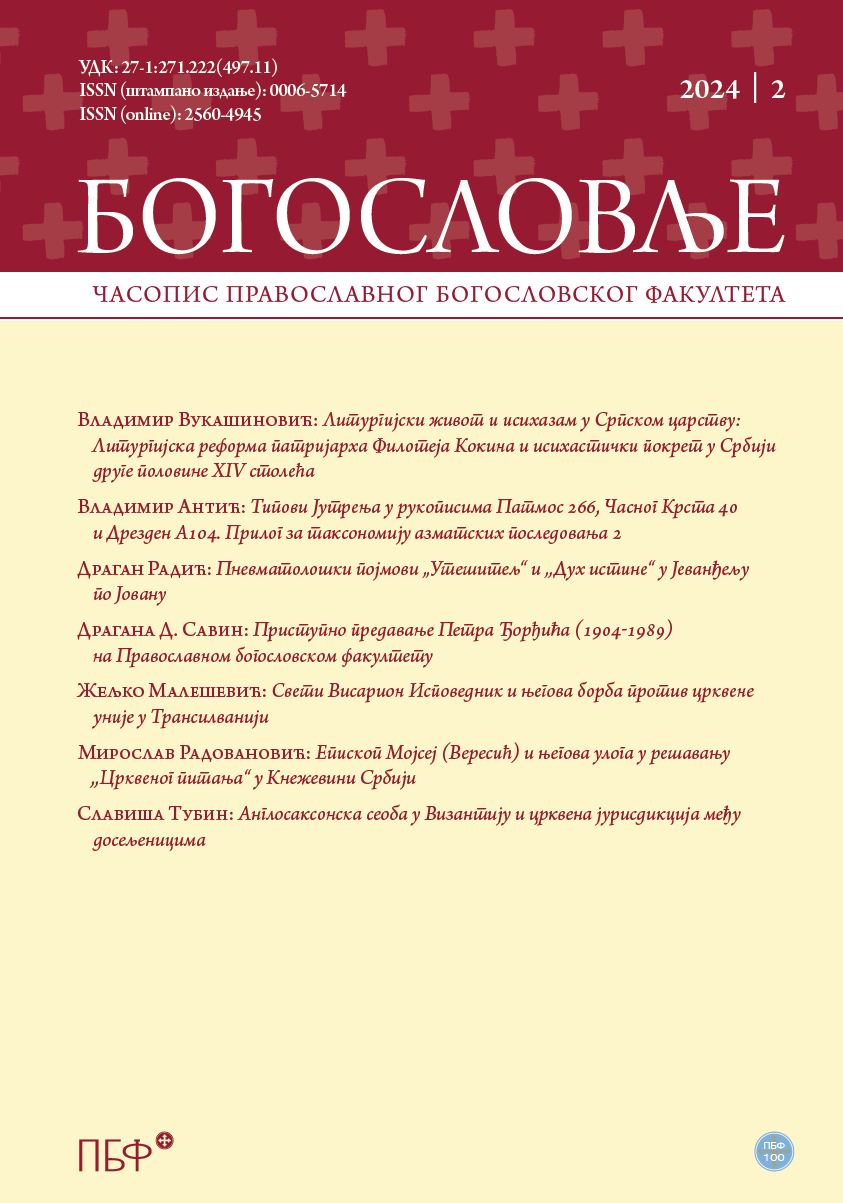
The period of the 19th century represents one of the most turbulent periods in the history of Serbian statehood. The Principality of Serbia, throughout the entire mentioned period, strove to win as favorable a position as possible on the international stage and made the centuries-old dream of state independence ever closer. Guided by the idea of German and Italian unification, the goal was to create a single South Slavic state in the Balkans. After the Berlin Congress, the independent Serbian state focused a lot of attention on its internal organization, which penetrated into every pore of society. The Serbian Orthodox Church could not remain a silent observer of the events in which the state found itself, and actively participated in them, often not sharing the ideals and viewpoints of the representatives of the state authorities. The Serbian Church made great efforts in realizing the idea of South Slavic Piedmont and shaping the Serbian national idea. Within this work, special attention will be paid to Bishop Moisej (Veresić) and his activity and role in the years of not so harmonious relations between the Serbian state and the Church, known in history as the “Church question”. Bishop Moisej was the bishop of Šabac, Negotin, and then the administrator of the metropolis for a short period of time from 1881 to 1883. After completing the administrative function to which he was called, he replaced his episcopal robes with the robes of a state councilor, from which he later retired. The personality of Bishop Moses managed to unite church and state service, which is almost a unique case in our rich history. All of the above therefore deserves special attention in elucidating his intentions and actions.
More...